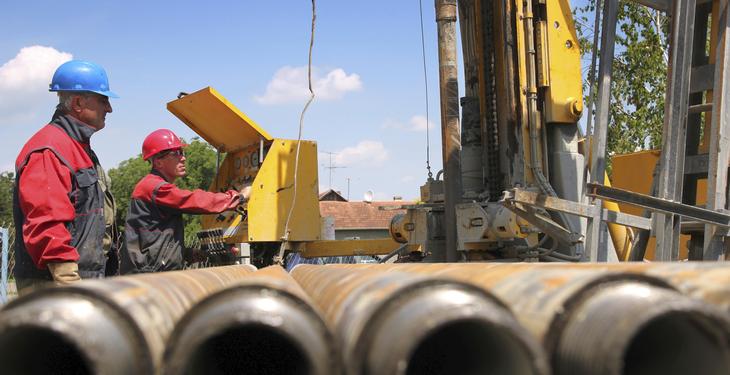Although Ordinance 114 will affect mostly the small and medium-sized producers in the gas sector, with their investment in exploration and exploitation falling by 30-50%, its consequences will harm the entire system, say officials of the Association of Oil and Gas Producers ROPEPCA.
The Ordinance, which aims to protect the household consumer, greatly distorts the market and induces competitive disparities between gas producers and suppliers, according to a Deloitte study conducted at Ropepca’s request. The biggest problem for producers is the capping of the gas price to 68 lei per MWh, more than the surcharge newly introduced.
„There is pressure on the suppliers’ margin, who create the alternatives in a market… ultimately, liberalization is also taking place with the apportion of the suppliers that come with alternative offers,” says Sorin Elisei, senior manager, Deloitte.
However, following the adoption of GEO 114, we can no longer talk about a free market, says Saniya Melnicenco, president of ROPEPCA. „On a scale of 1 to 10, I could give the mark 5 to the current state of the market, in terms of liberalization,” Melnicenco tells energynomics.ro. She argues that this week new negotiations will be held with members of parliament and later of the government. It is not known, yet, for the time being, what the results will be.
Here are the effects of GEO 114 on the market, identified by Deloitte:
1. Reduction of state budget revenues. The collateral effects of this Regulation would overflow the particular gas industry impact and generate direct and indirect negative effects on the entire business environment and society. The reduction of the state budget revenue with an estimated RON 2.26 bn, equivalent to approx. 17% of the social benefits paid in 2017 is an example of direct effect.
2. Security of supply disruption. Gas market disruption and over-regulation induce changes in the investment patterns, review of regional support initiatives, potential cascaded effects on regional and European integrated transport corridors and hubs. From a promising role of regional energy security provider, Romania would have to increase its imports of non-EU gas origin to cover domestic consumption.
3. Potential state aid for industrial consumers. Romanian industrial consumers will benefit from domestic gas prices arbitrarily set at a capped value, significantly below market quotations; they would immediately have to account for state aid allegations from their MS peers. Recent anti-dumping investigations conducted by EU in relation to companies from third party countries using natural gas at preferential prices (e.g. Russian Federation, USA, Trinidad Tobago) indicate a serious risk in this direction.
4. Market competition disruption and discrimination of producers versus suppliers. Romanian competitive gas market will eventually cease to exist between April 2019 and March 2022. The restrictions to sell domestic gas at a capped price to fixed destinations shall render useless trading activities. Competition in the gas production will decrease, as small independent producers might not be able to finance their operations at the new price. Domestic gas producers (holders of supply licenses) will be required to sell their output at a capped price, whereas other local/ foreign suppliers will be allowed to resell the respective gas volume to their counterparties (non-household customers) with an unlimited margin. Domestic gas producers (holders of supply licenses also) will have to pay 2% on the gas output value, whereas suppliers are required to pay a 2% tax only on the operating margin and foreign producers/importers will not be required to pay any similar tax.
5. Failure to provide a sustainable public service for households gas supply. Although household customers’ interest is mentioned at the core of these regulatory measures, its multiple impact on the final price (e.g. 2% turnover tax applied to tariffs, recovery of past losses incurred by households’ suppliers) would result, at best, in maintaining the current final price until February 2022. However, this would lead either to generate additional losses (in case of NERA establishing a fixed retail price, which would need to be recovered later anyway) or to a higher retail price, contrary to the GEO 114/2018 scope. Instead, Romania should carefully evaluate the proper implementation of the vulnerable consumer concept, to grant direct financial support to those in need, and avoid subsidizing households that exceed average income at regional/ national level.
6. Limitation of free cross-border trading of local gas production. Prioritizing local gas delivery to households raises a barrier to the export of natural gas from Romania to other EU countries. As domestic gas producers are also required to deliver the remaining volumes from their output to nonhousehold customers, export availability of Romanian gas origin would equal to zero. EU investments efforts in the infrastructure on the Romanian territory are disregarded.

